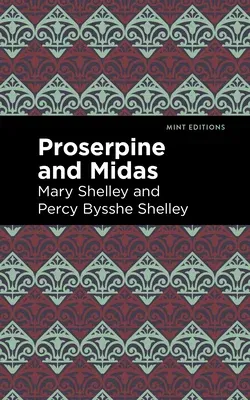Proserpine and Midas (1820) is a collection of plays by Mary Shelley
and Percy Bysshe Shelley. Combining Mary's blank verse and Percy's lyric
poems, the Shelleys offer two groundbreaking retellings of classical
myth. Together, the plays illuminate the working relationship of a
husband and wife who helped define Romanticism, highlighting their
individual talents in the process. While Proserpine was published in
1832 in The Winter's Wreath, a London periodical, Mary Shelley was
unable to find a publisher for Midas, which remained unprinted until
the twentieth century. Ceres, the goddess of agriculture, leaves her
daughter Proserpine in the care of two trusted nymphs. While the women
are out picking flowers, Proserpine is kidnapped by Pluto, the dreaded
lord of the underworld. Distraught, Ceres laments the loss of her
beloved girl and appeals to Jove for assistance. Proserpine is a
retelling of an ancient myth which remains mostly faithful to its source
while emphasizing the feminist qualities of its tragic content. In
Midas, the wild god Pan is defeated in a musical competition by
Apollo, god of the sun. Determined to claim victory, he arranges a new
contest with King Midas as judge. Although his power on earth is
unmatched by any human, Midas soon learns that to play at divinity one
risks reaping the greatest of sorrows. Proserpine and Midas is a
masterful take on two of ancient Greece's central myths. Using their
talents for narrative and song, the Shelleys adapt these well-known
stories for the nineteenth century and beyond, showcasing their
sociopolitical significance in a world defined by the democratic ideals
of the Greeks. With a beautifully designed cover and professionally
typeset manuscript, this edition of Mary Shelley and Percy Bysshe
Shelley's Proserpine and Midas is a classic of English literature
reimagined for modern readers.


